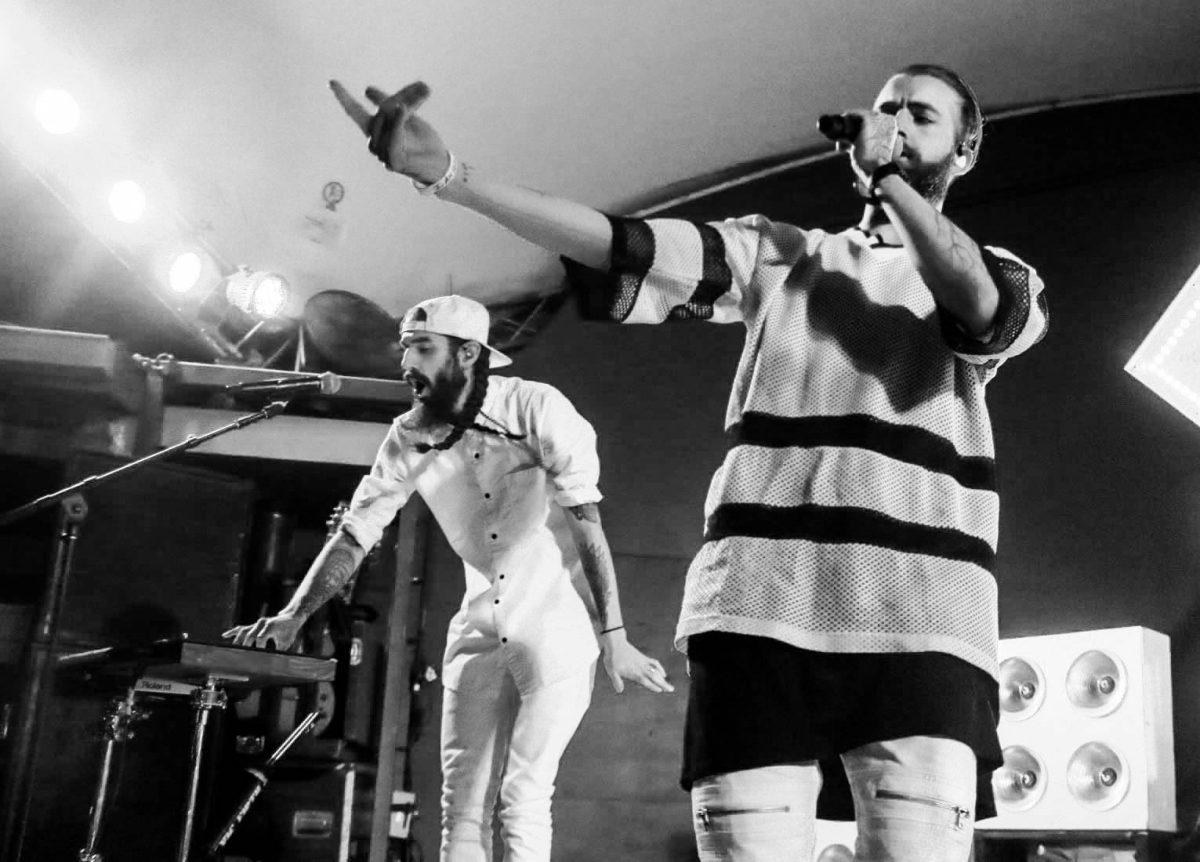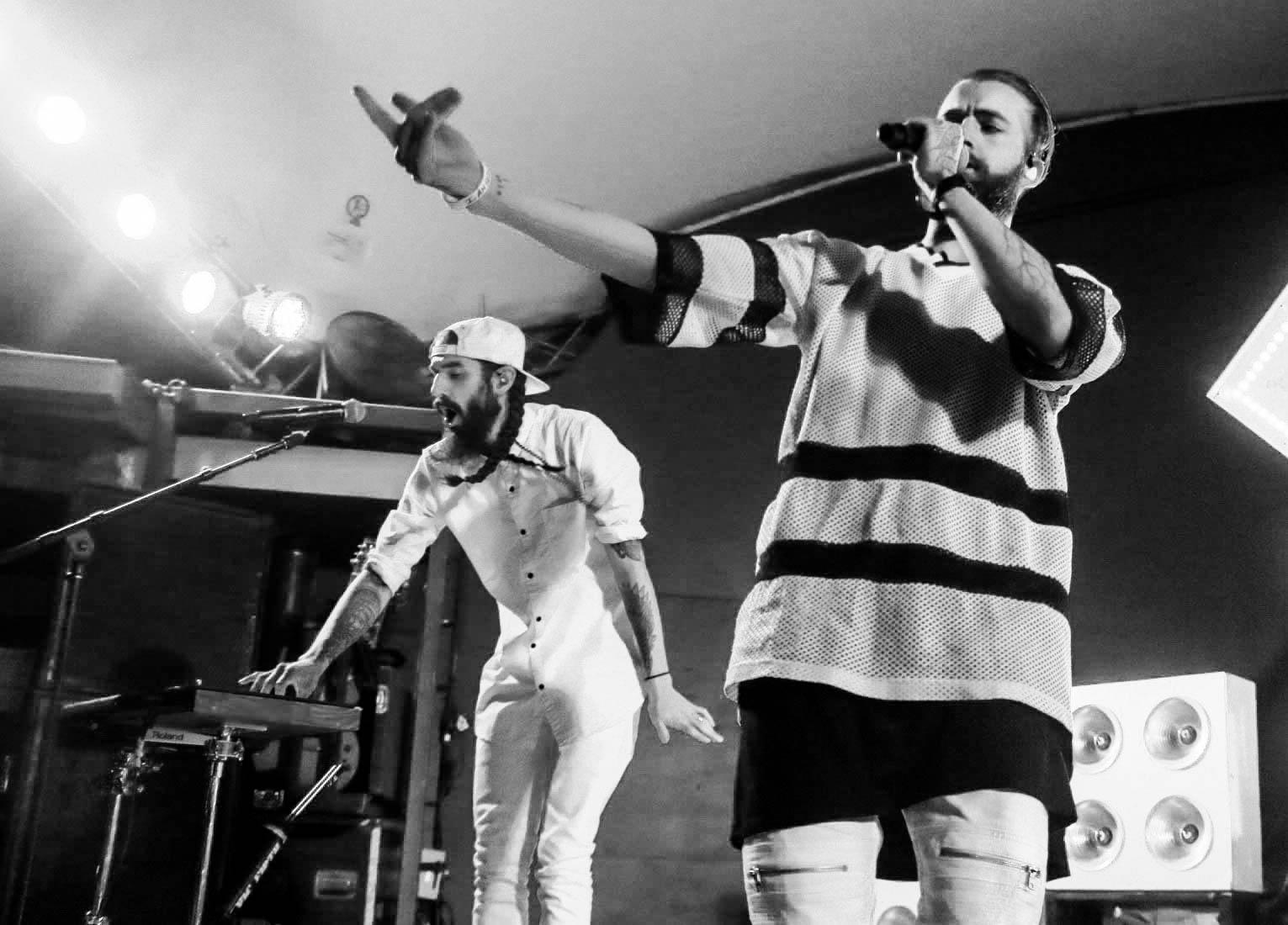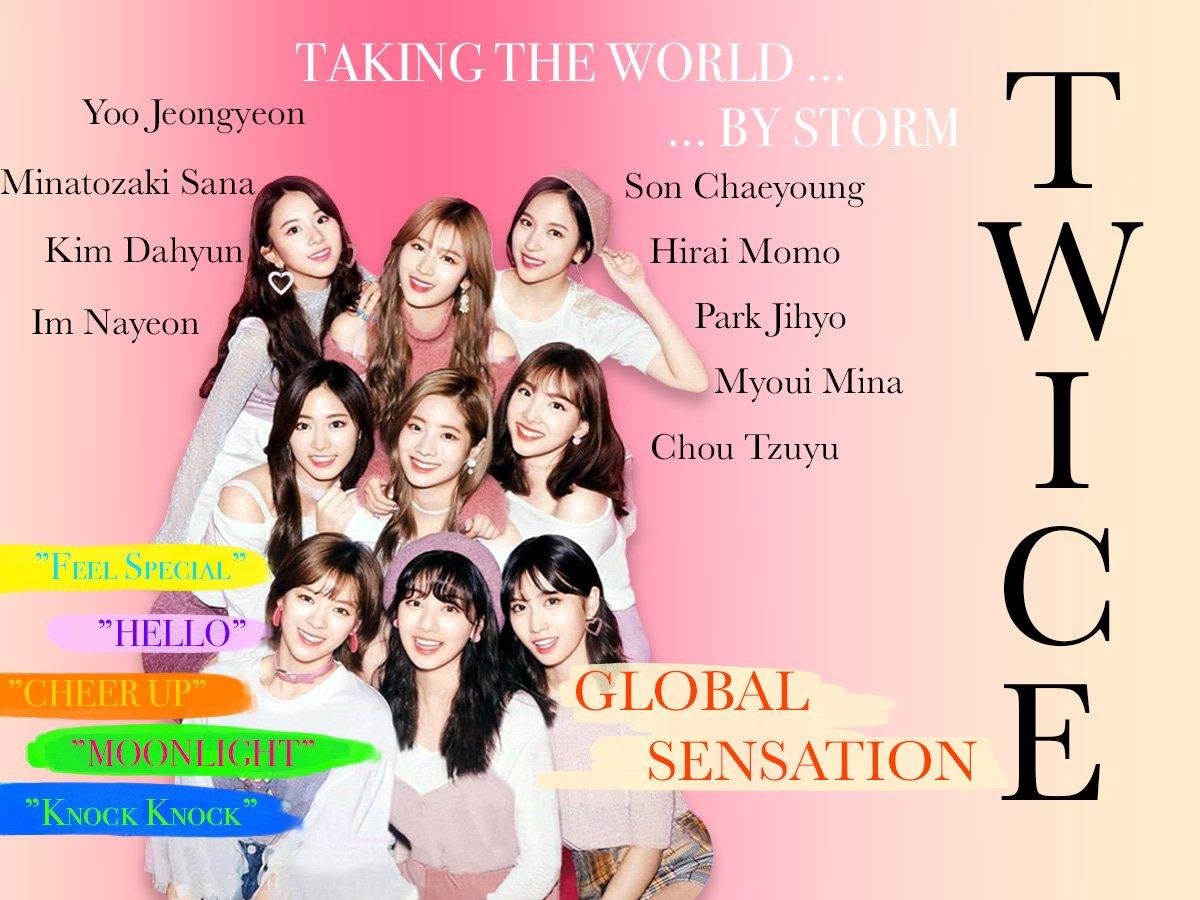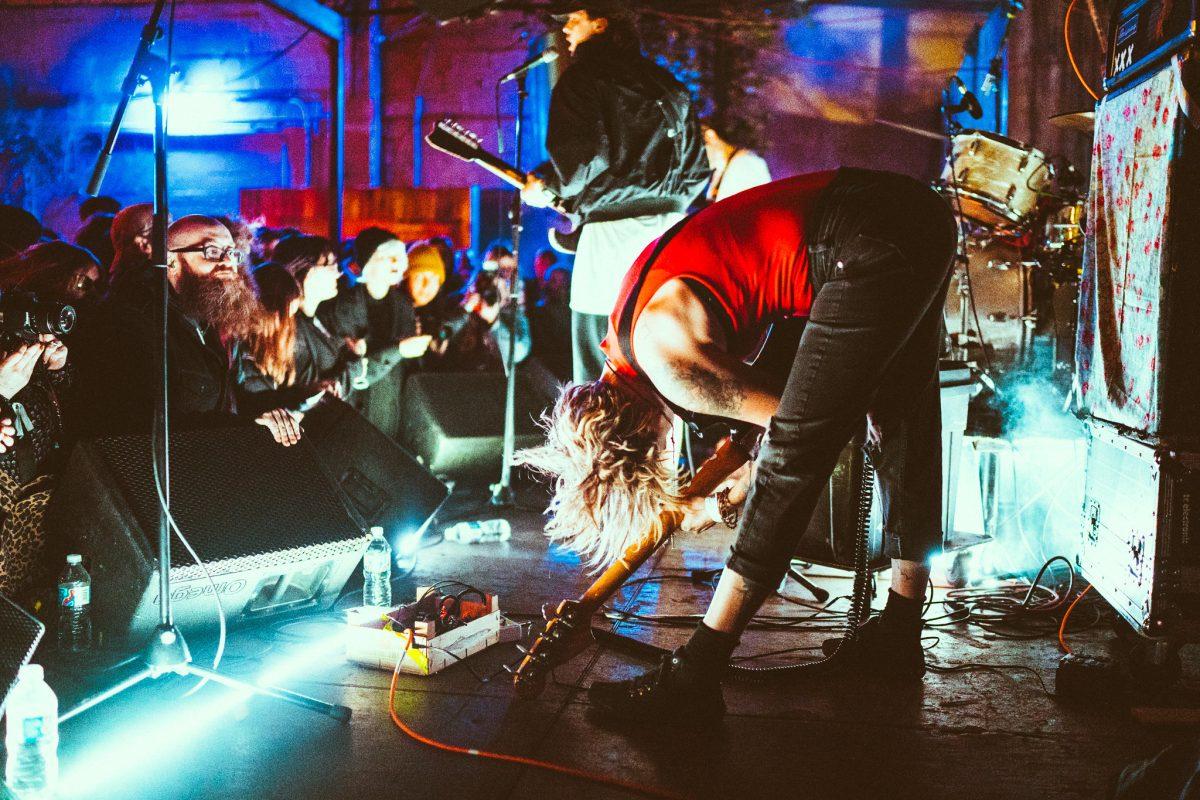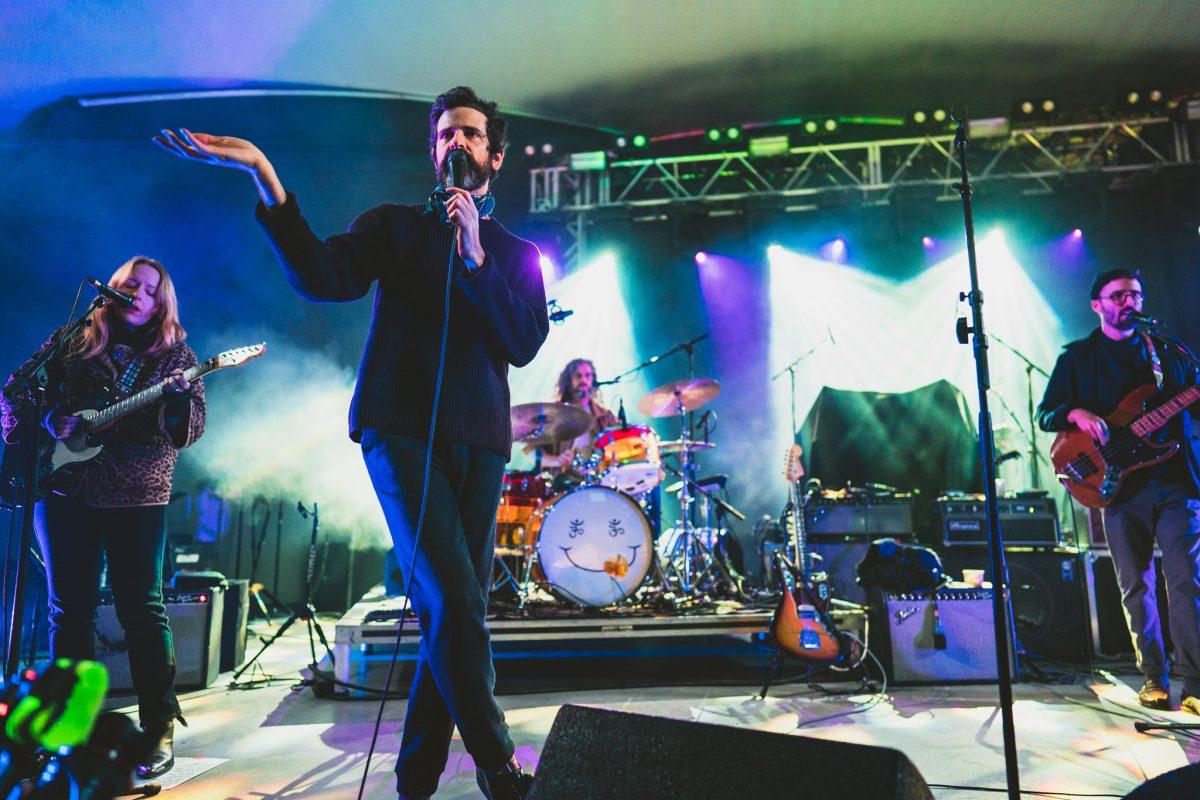MISSIO performs songs from their album “Loner,” which was released this year.
Austin-based duo MISSIO filled Stubb’s with their gritty, electronic-meets-hip-hop sounds on Nov. 18.
Story by Francie Zenner
Photos by Jordan Steyer
Matthew Brue’s raw and personal lyricism mixed with David Butler’s unparalleled music production skills made for a distinguished performance leading up to Blue October’s main set.
Once Brue and Butler left the stage, they took a moment to open up to ORANGE Magazine about everything from their experiences and hardships to their goals for the future.
Welcome back to Austin. How does it feel to be back where MISSIO started?
Brue: As far as the crowd goes, it was so welcoming. This is the biggest show we’ve played in Austin, so it was very special.
Butler: I moved to Austin to go to the University of Texas at Austin, and when I first got here I was playing music indoor Stubb’s. I stood on the big stage and I said, “I’m going to play on this stage one day.” That was probably ten years ago and this was the first time I played that stage. This is like a bucket list for me and this venue is just a special venue. There’s just something in the air. Everyone’s appreciative, including us.
How has touring with Blue October for the past few weeks been?
Butler: Those guys are really inspiring. They’ve been doing it for a long time and they’re super pro, super humble, super nice and super encouraging to us.
Brue: This is the first time touring with our friends, so that’s a totally different dynamic. When you go into a tour playing with a band you don’t know, it feels like you’re going to school for the first time and everything’s just a little bit uncomfortable. Coming in and knowing a bunch of the guys made it easy.
Butler: It just felt natural.
This year, MISSIO released their first debut album, “Loner.” Can you tell us a little about the album?
Brue: A lot of the lyrical content, like I was saying on stage, is about my story struggling with addiction and alcoholism. Songs like “I Don’t Even Care About You” were written out of a place of depression. I just kind of wanted to share all of those messages and experiences with people, hoping that a couple of them would relate, and I think that it’s done that.
MISSIO recently released an EP entitled “Skeletons: Part 1.”
The lyrical content in “Loner” is personal and visceral. Why did you decide to show this vulnerable side in your music?
Brue: I’ve never been the person to write my thoughts and feelings in a diary. Songs have become a way to express myself, so it was just something that had to be done, whether someone was going to hear it or not. I was writing the songs because it was killing me to hold all these feelings and emotions in.
Butler: When we wrote these songs, nobody knew anything about who we were. We didn’t spend any time thinking about what people were going to think about our music. It was literally us trying to make sounds and words that, when we heard back through the speakers, made us feel good, period. If I‘m being honest, before all this stuff happened, I was happy and content producing records and making my art. If anybody heard it, that’s cool, and if not that’s fine too. I’m going to make stuff that I like.
Brue: I was working two, three jobs at this time. It seemed really unrealistic to be in this position where I get to tour all the time and do music full time. In my head, I just tried to realize that I was stuck doing jobs.
Is there a balance between creating for yourself and creating for other people to have something they can resonate with?
Brue: I’m a strong advocate of not writing for other people. I can’t go into your brain and try to explain the experiences that you’ve had. But I can know what I’ve experienced in my own head and understand the place where that’s coming from and the emotions that I’ve felt during those times. So I feel like if I can go back to those moments, other people are going to resonate as well. I think it’s a dangerous thing, when you write something for someone else. There’s a potential for it to become very ingenuine.
Butler: Matthew and I have been writing songs separately for years. We were in different musical projects but were both a little bit contrived. We were just trying to reach these people and there was a business thought process. You want to have a radio single, you want to have this and that. When MISSIO started, it started as Matthew wanting to do music for himself and it made him happy. It evolved into us just making music for us. I think that as a band, if we ever lose that, then it’s not MISSIO.
You recently worked with Jeff Ray to release a music video for “Can I Exist,” and it was a powerful and provoking story. How did this idea come about and what was it like making the video?
Butler: Jeff is one of our best friends and is a talented dude. I’ve worked with him a bunch and we’re on the same page creatively. We had this song and we had already released it. There’s this whole business plan when you release stuff: once stuff is released, you don’t usually go back and do a video for it. Jeff heard the song, called us and was like, “This happens sometimes to me, but never with an artist that I actually know, but I heard the song and immediately saw the video.” He was pitching it to us and I got goosebumps just thinking about it. He said, “we have to make this video, what do we have to do to do it?” I said “listen man…”
Brue: “We’re broke!”
Butler: First of all, we’re broke. No success had happened and we already released the song so this was a terrible financial investment. Even if you do videos on a budget, they’re expensive. We were just like, you know what, at the end of the day, this is going to be a great piece of art and it doesn’t matter what the business plan says you should do, we’re going to do it. We found a way and every single person, including the actors, light guys and video guys, believed in the end product. That’s why that video is incredibly powerful and real. I still think it’s one of the things I’m most proud of that I’ve ever done in my life.































